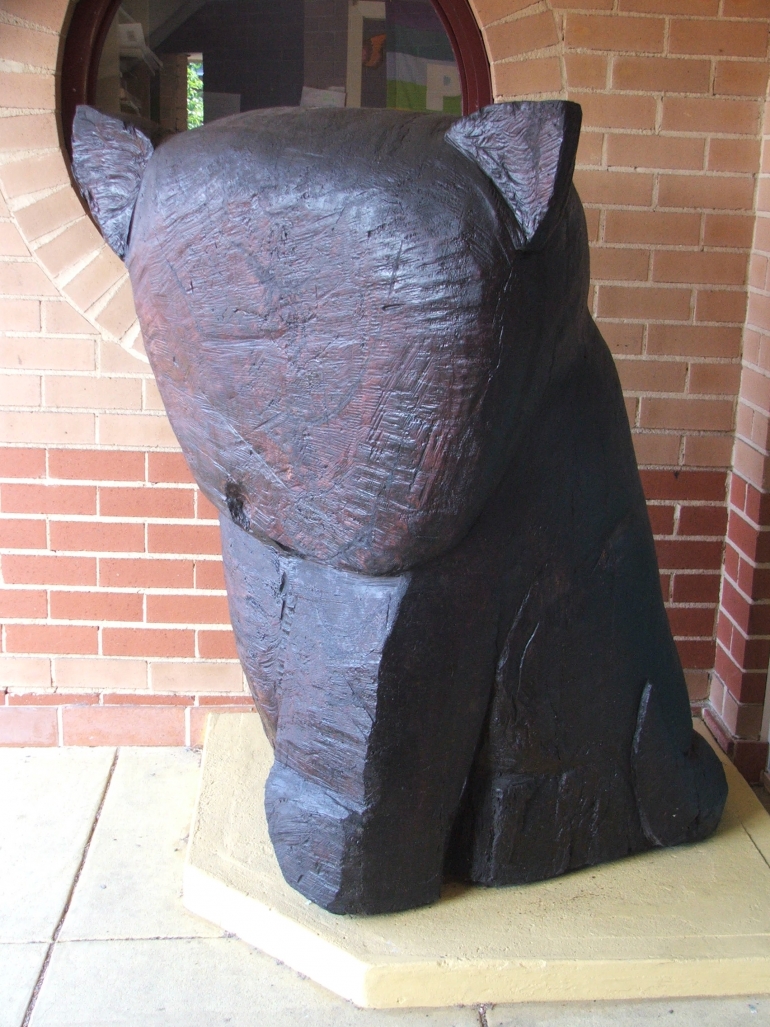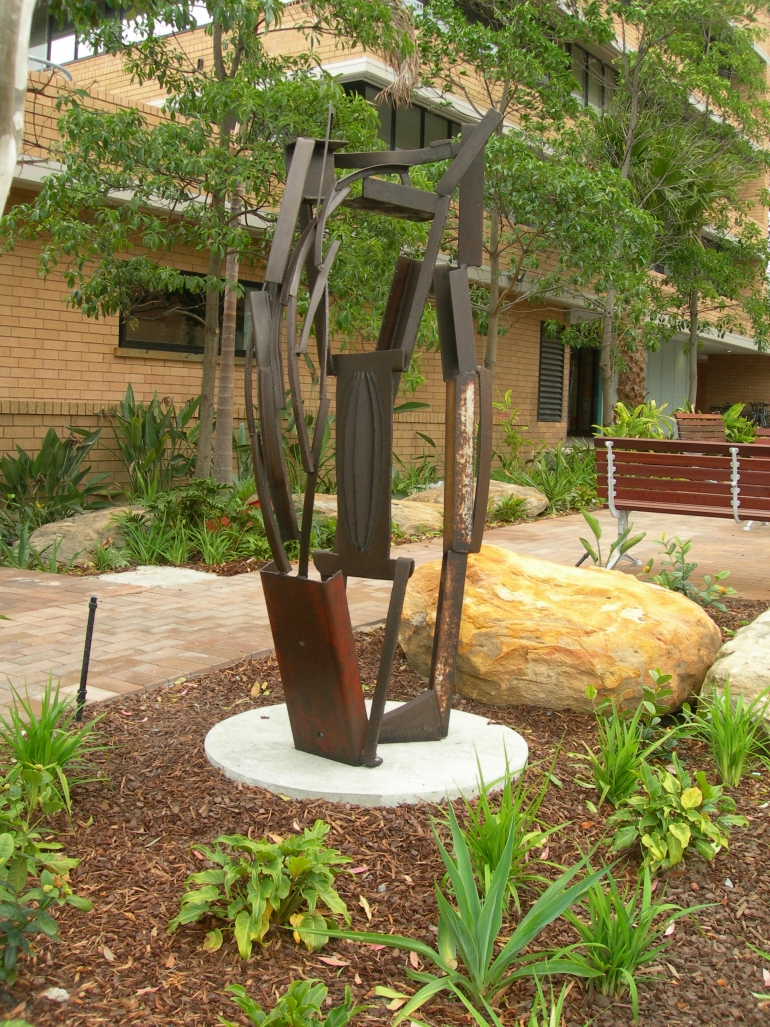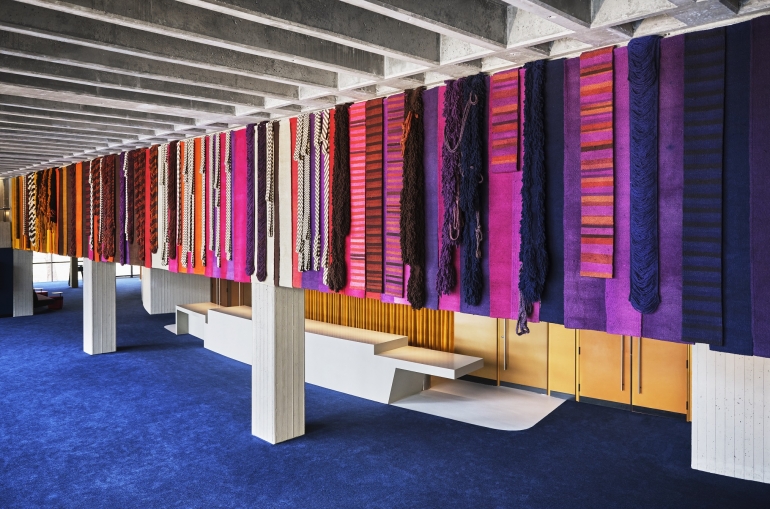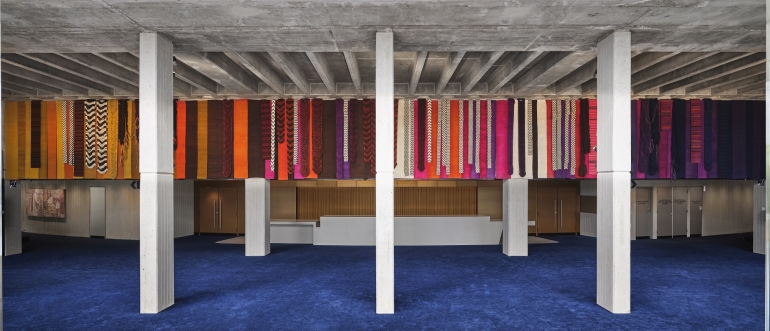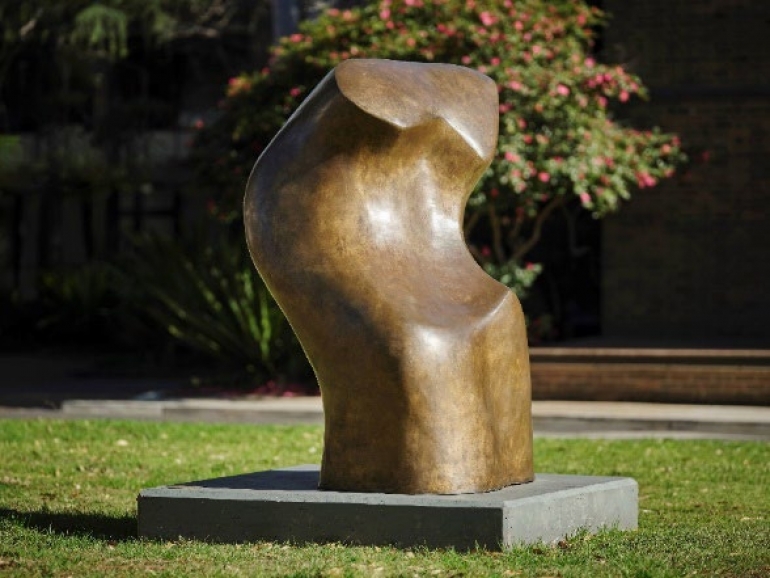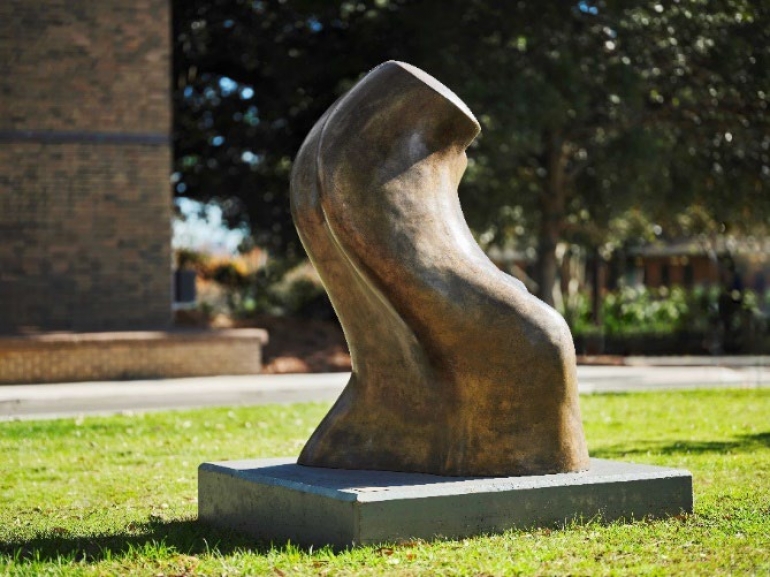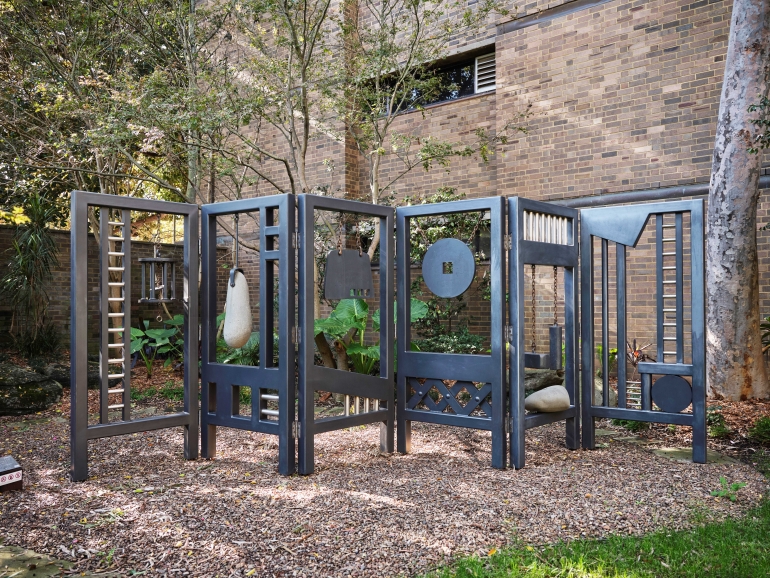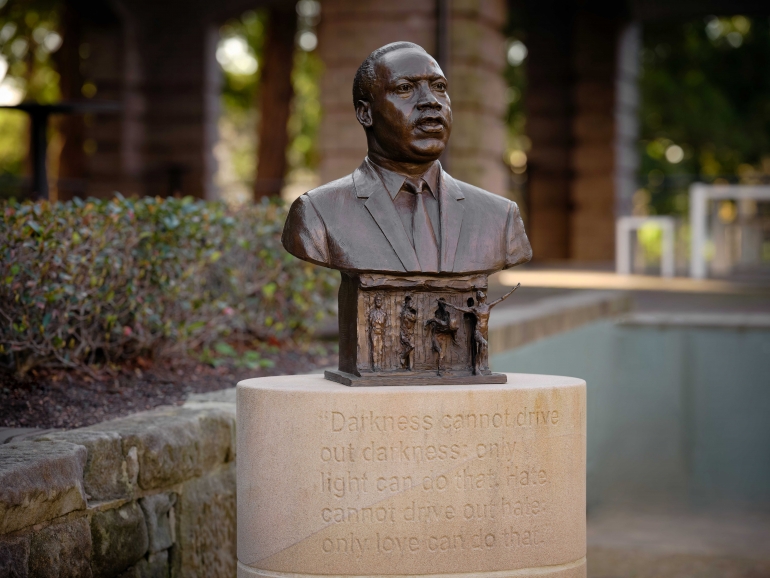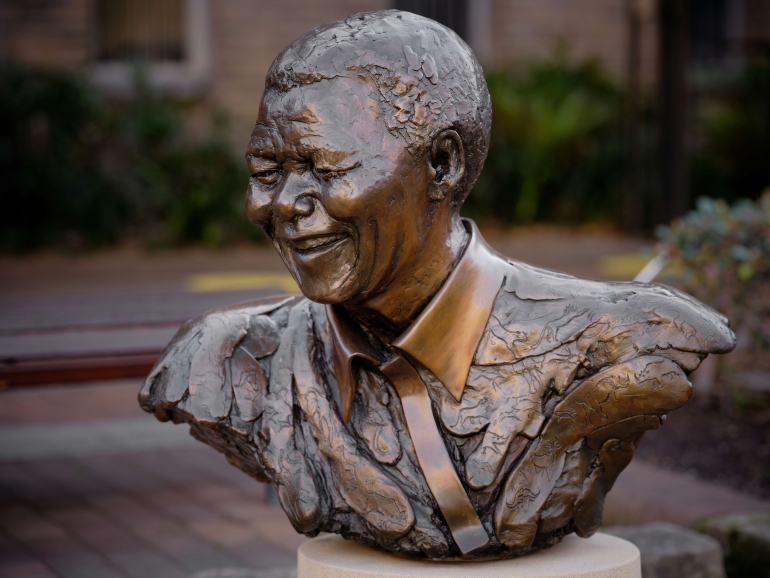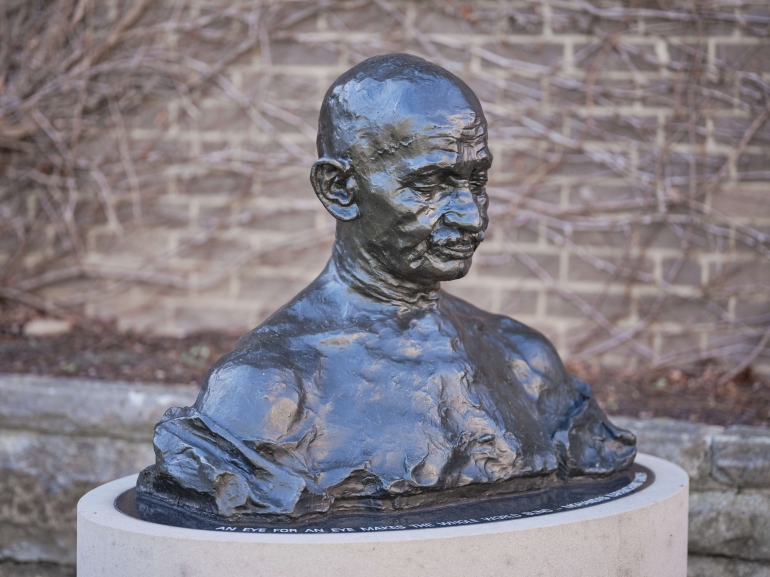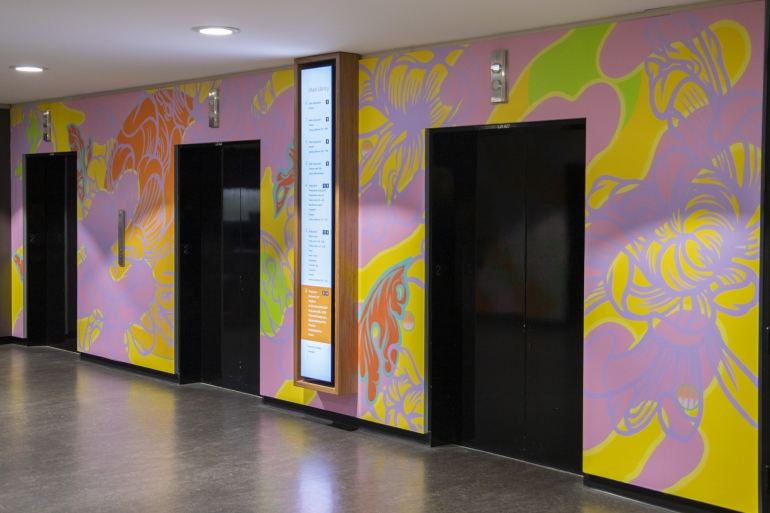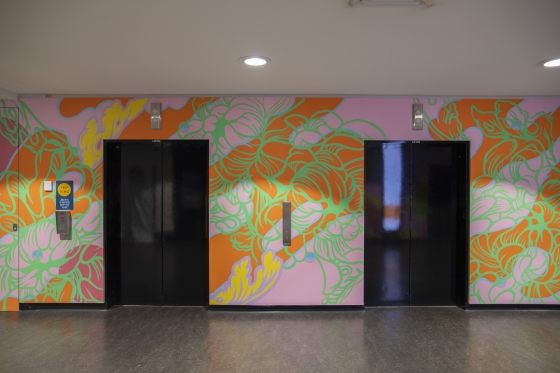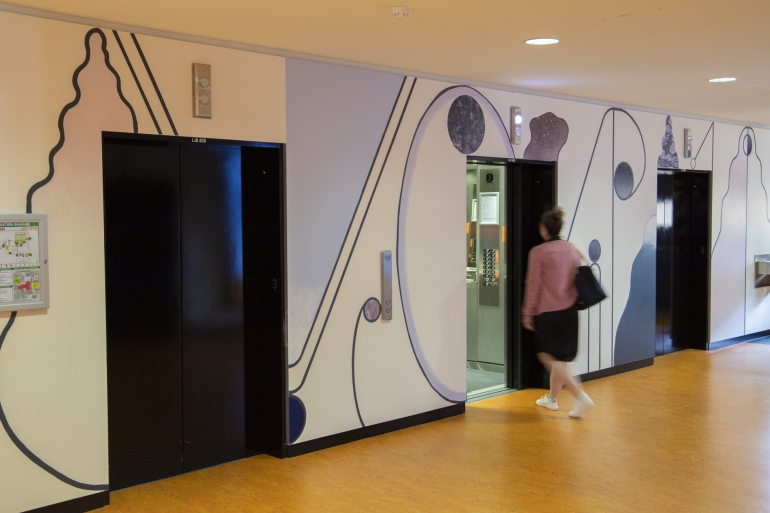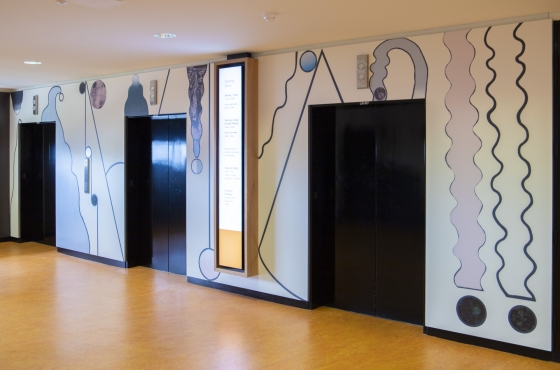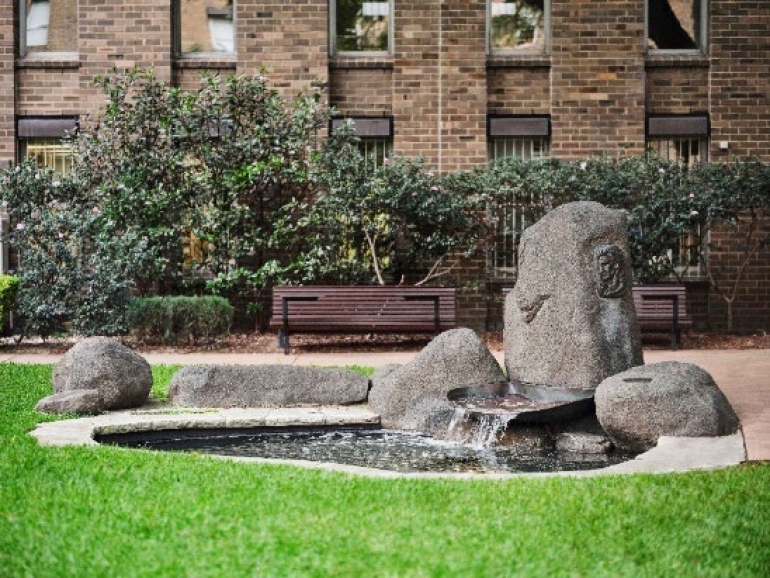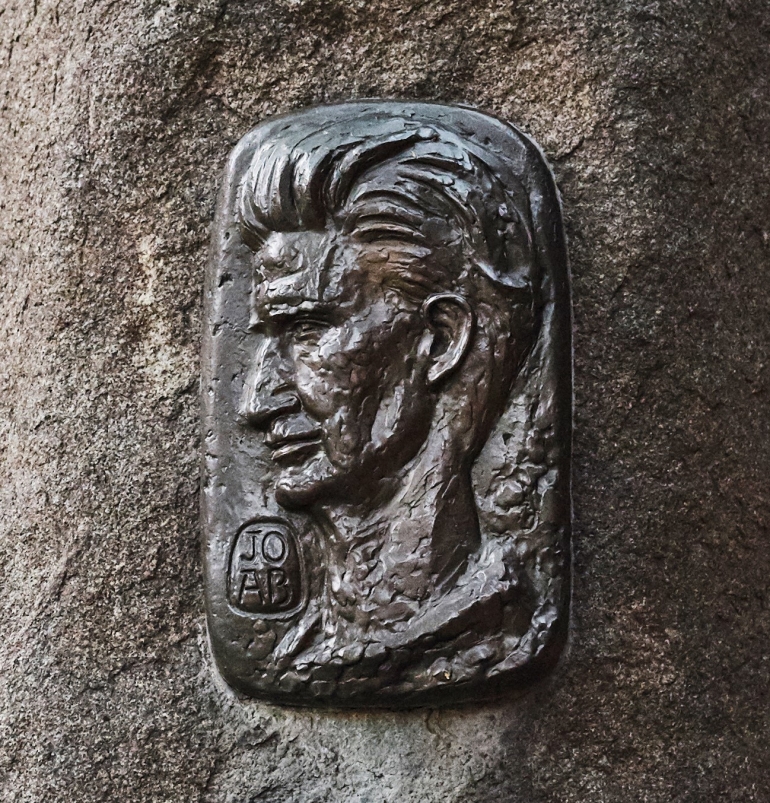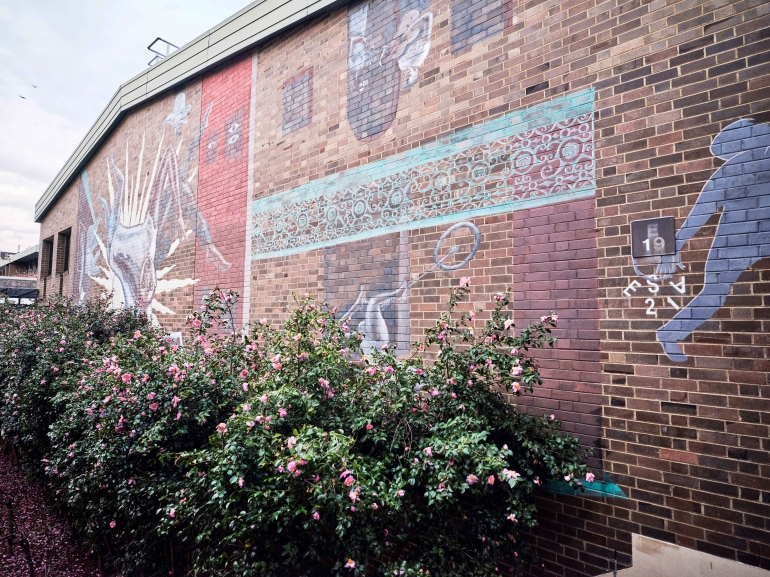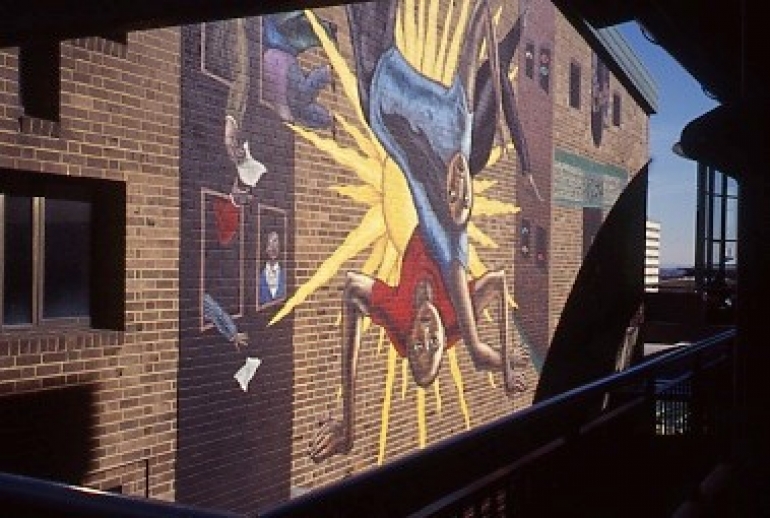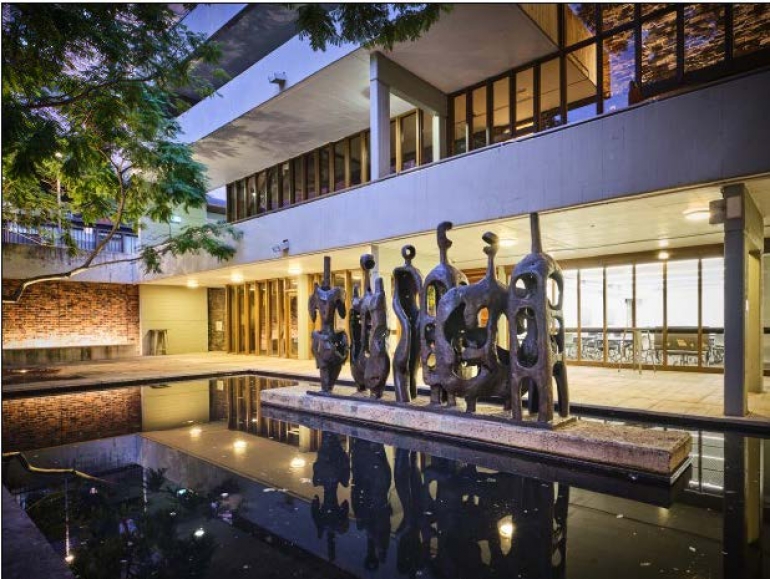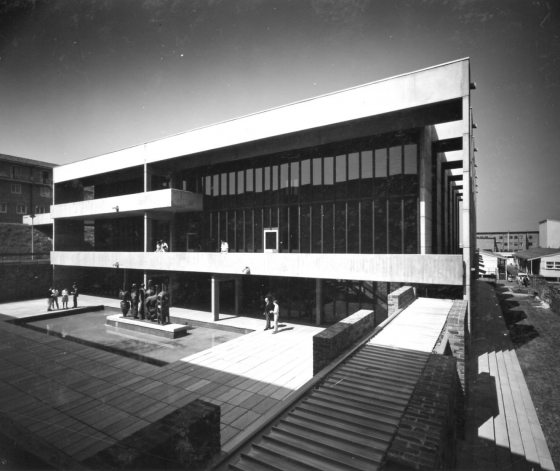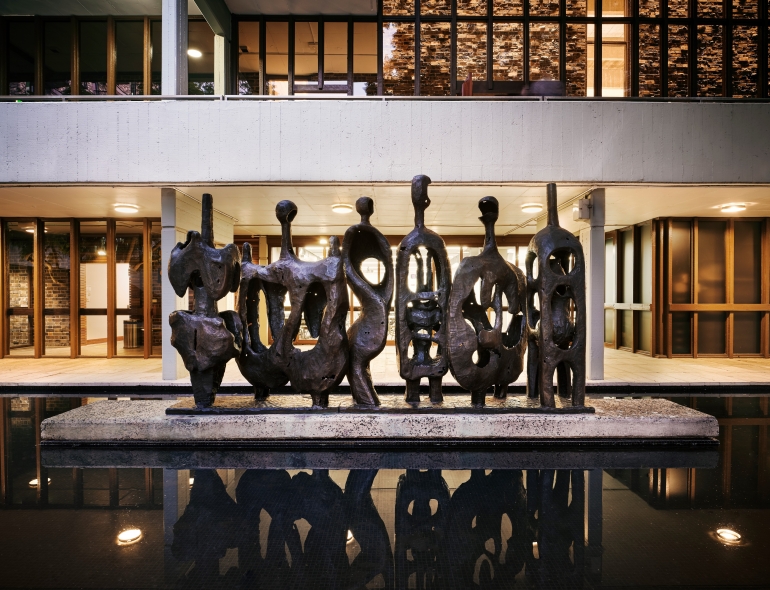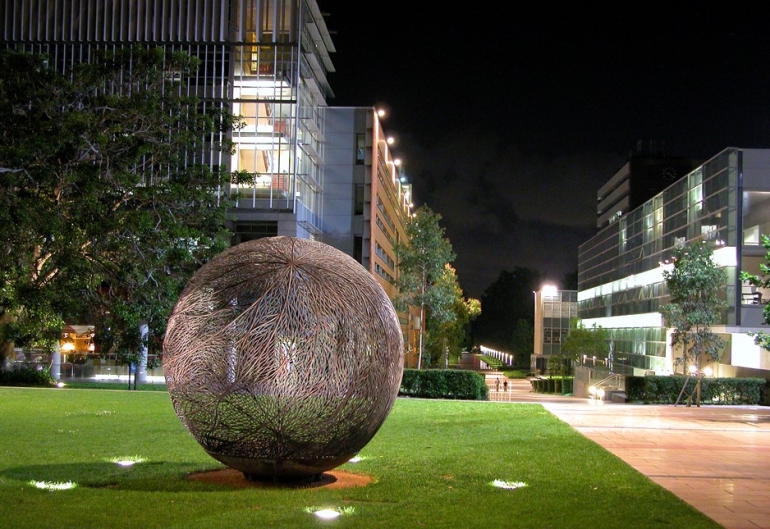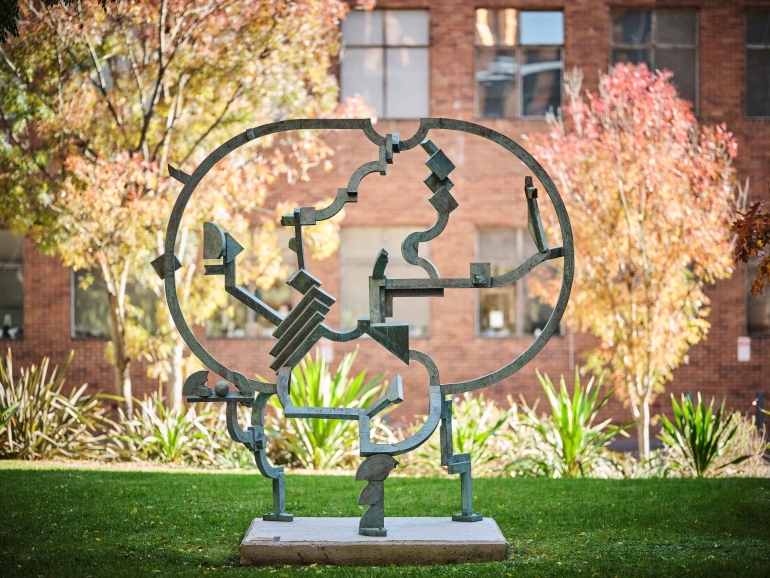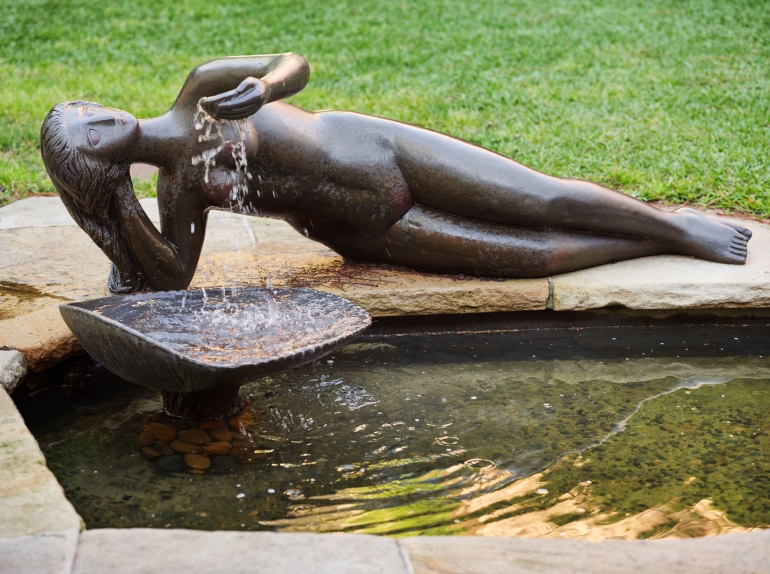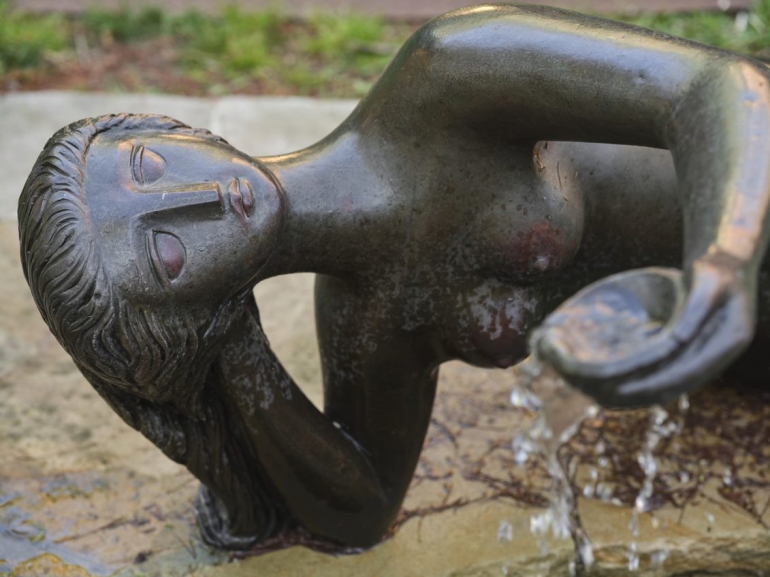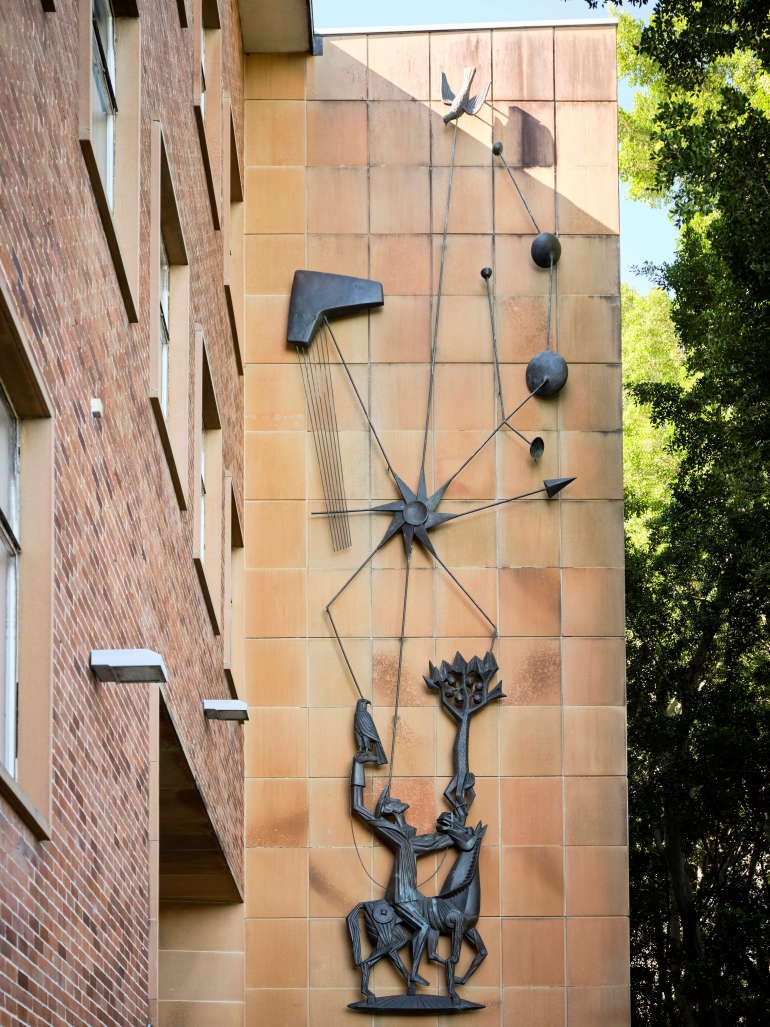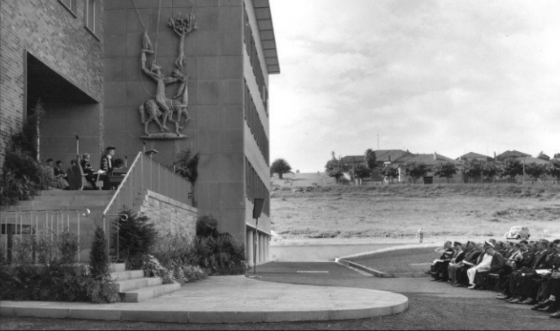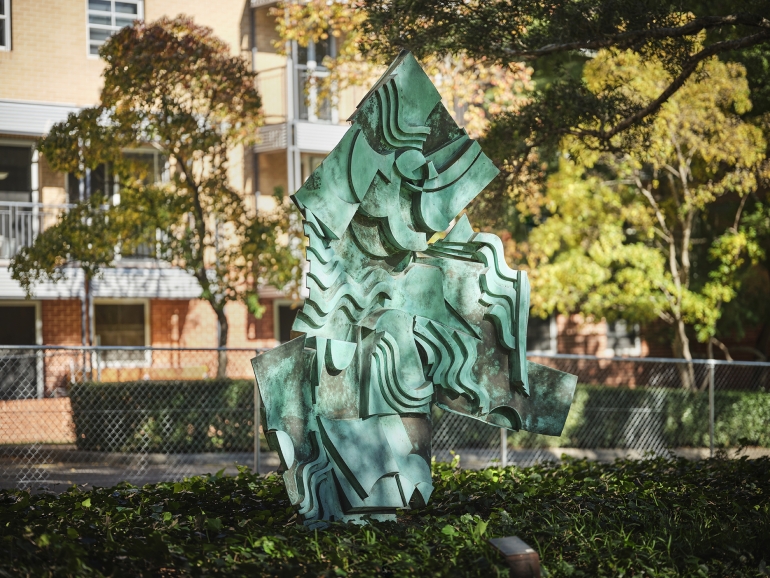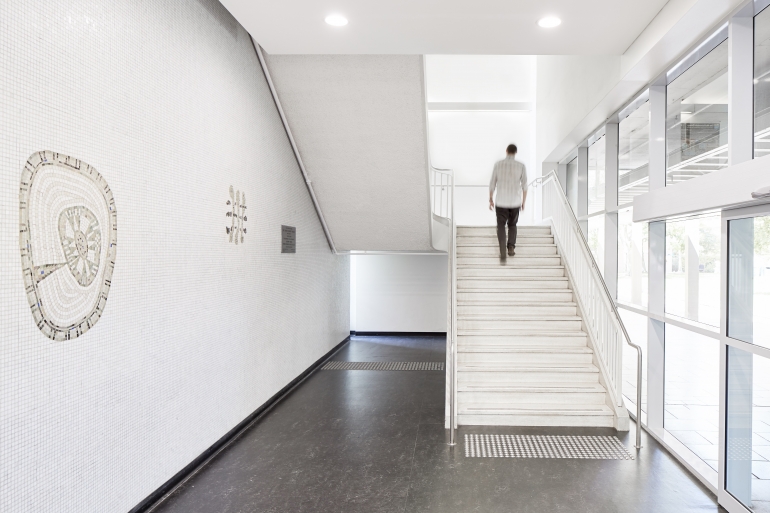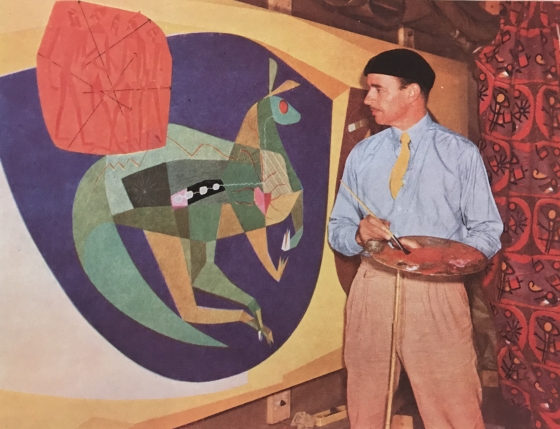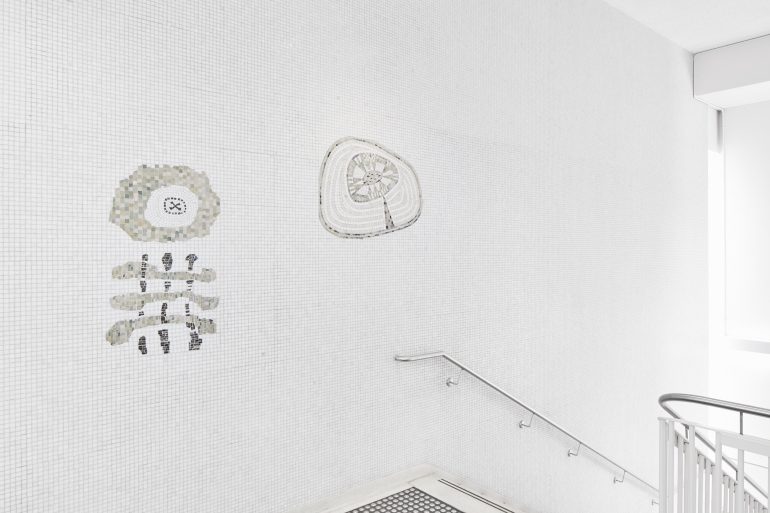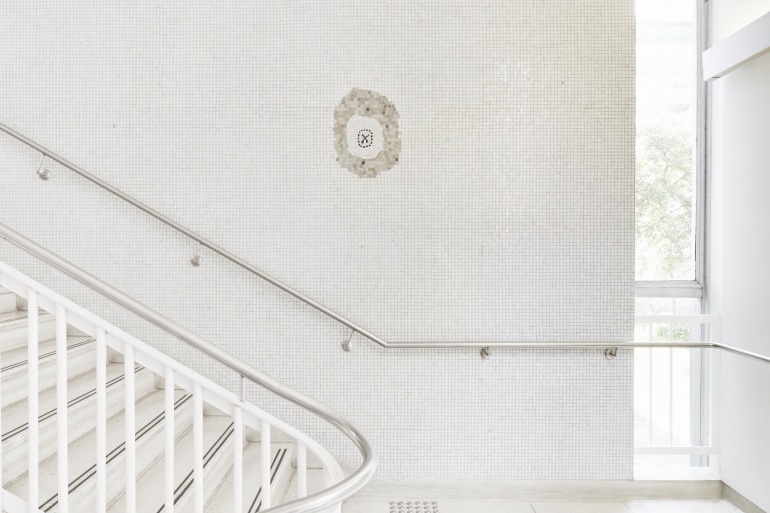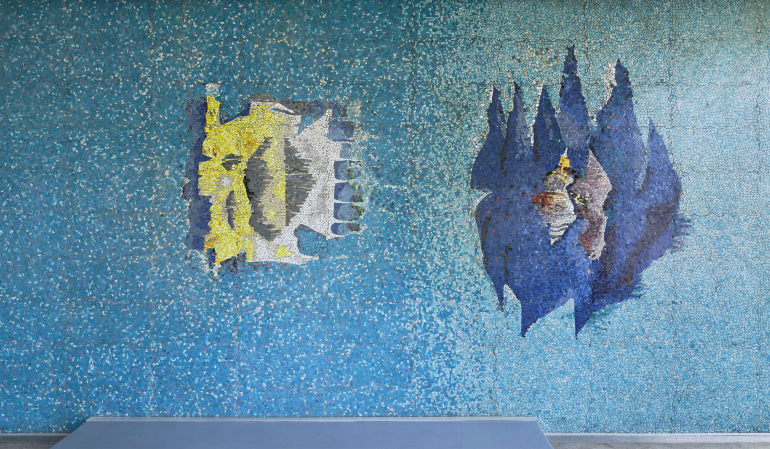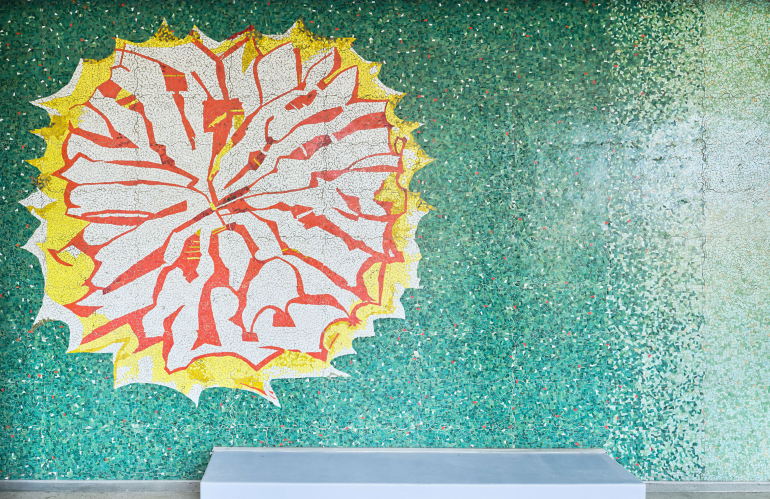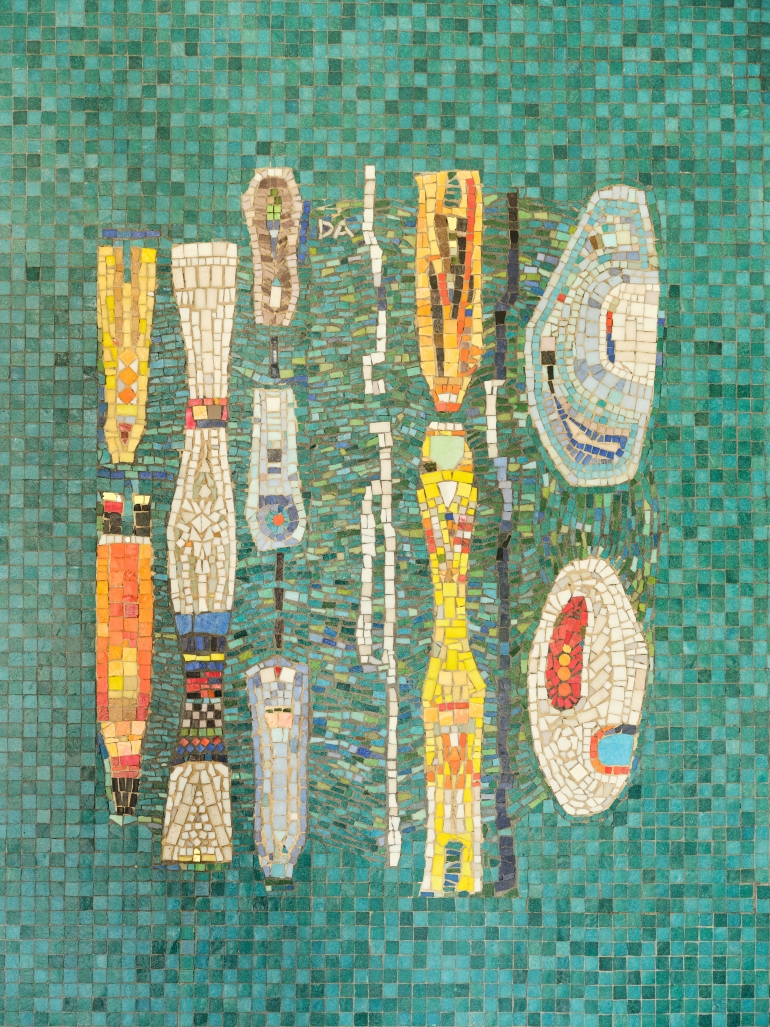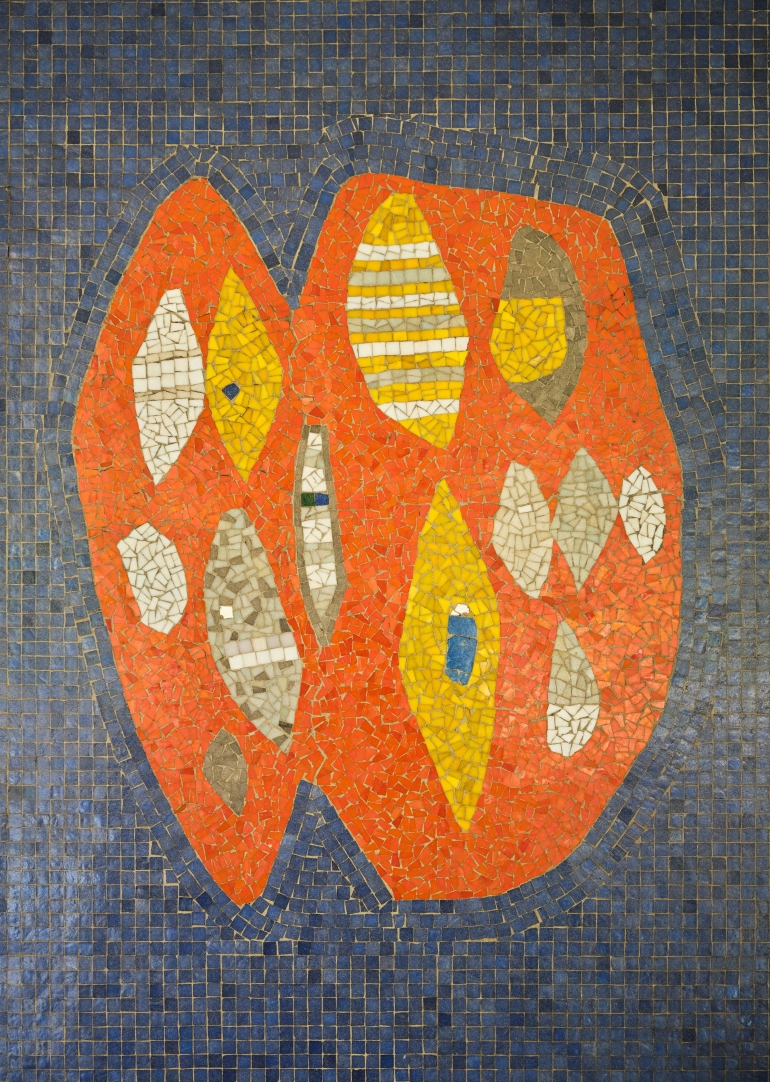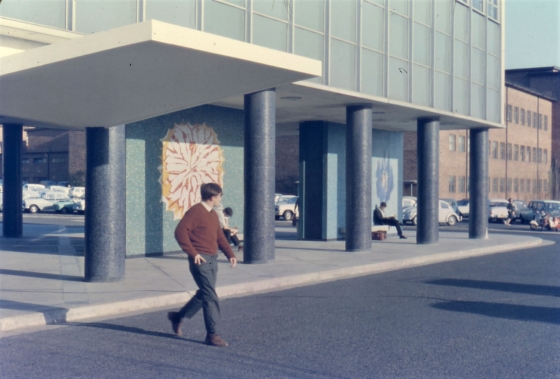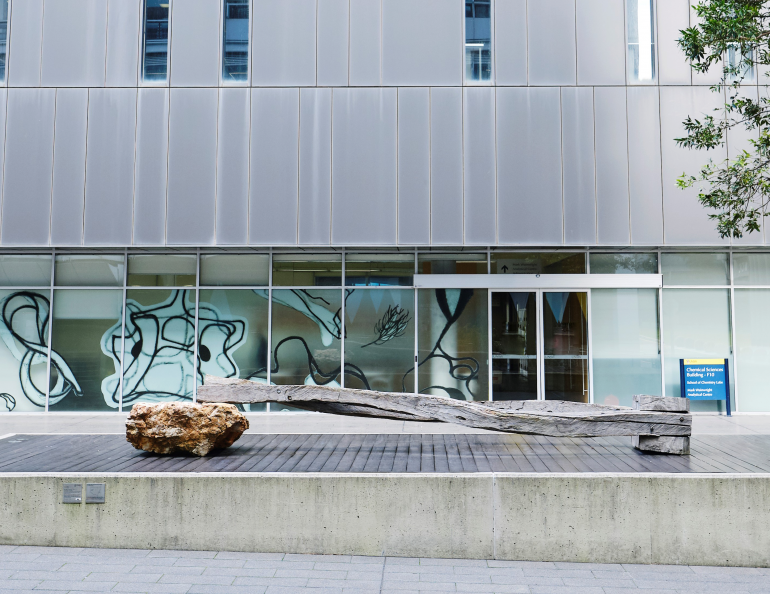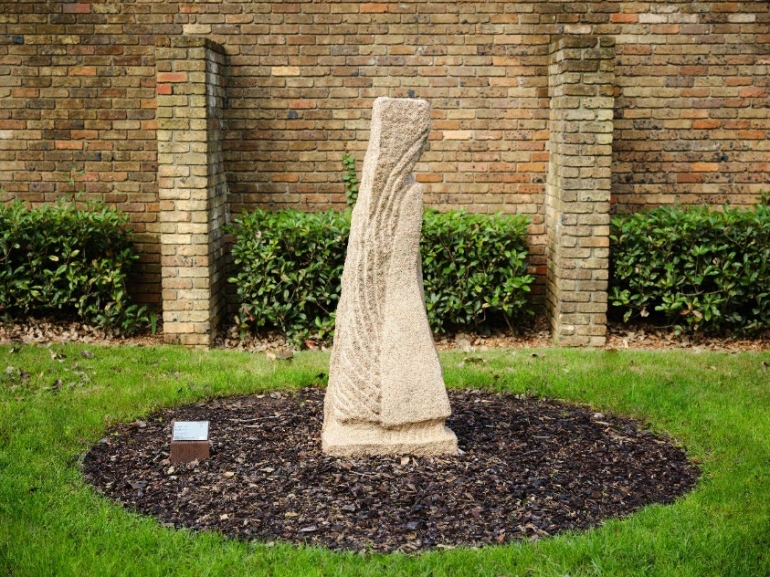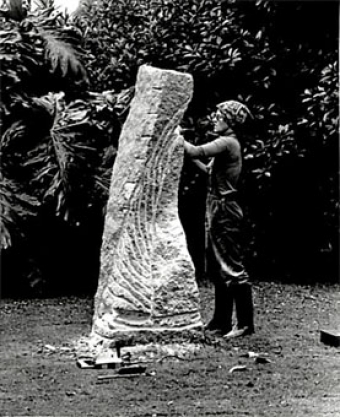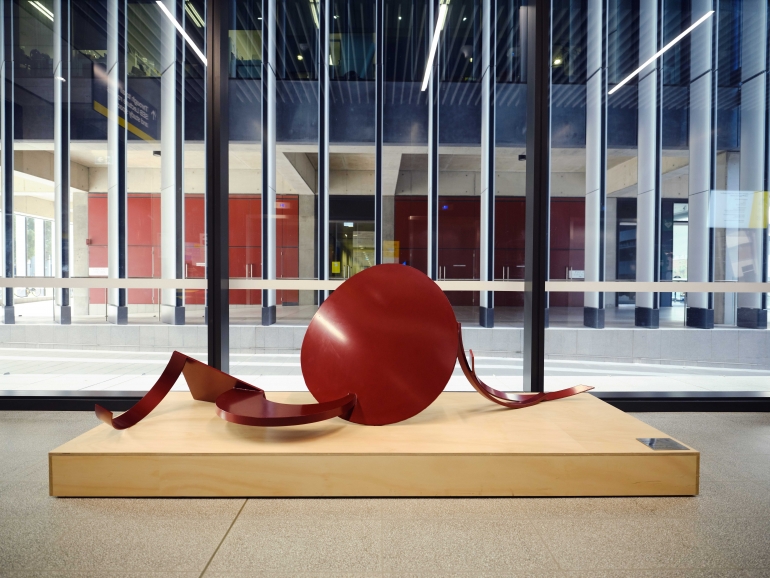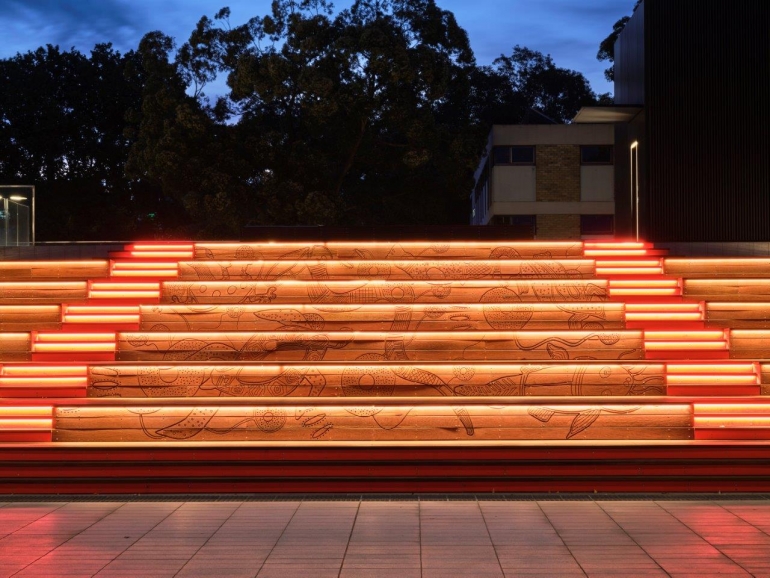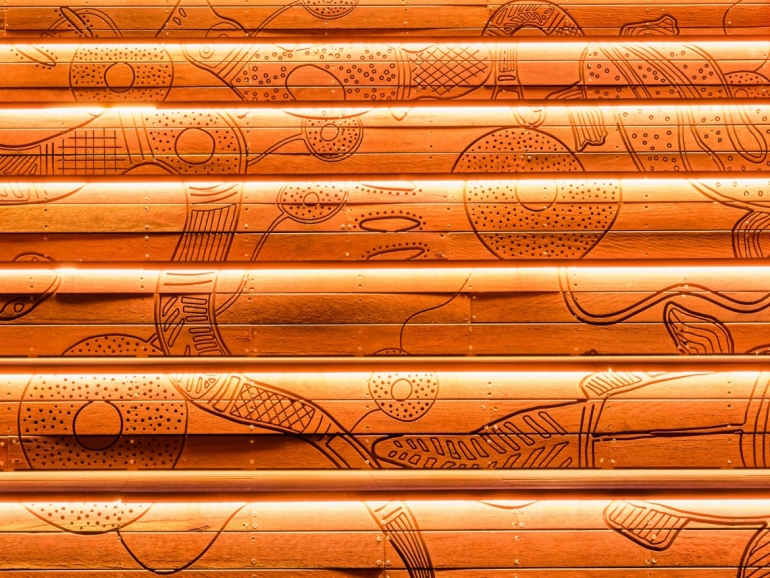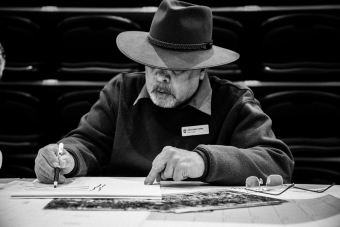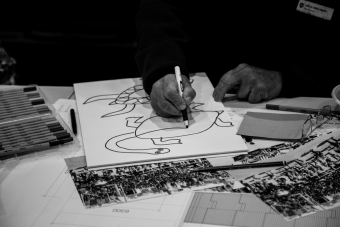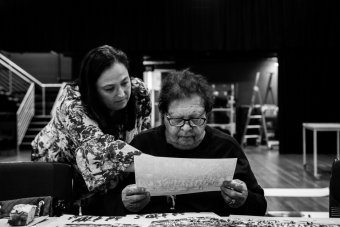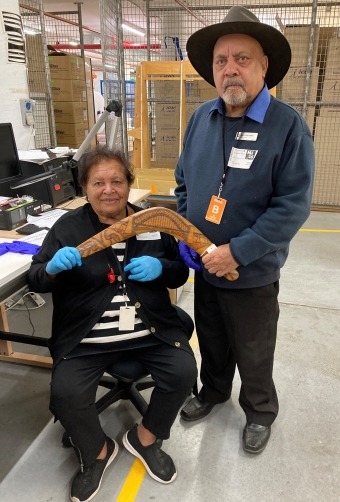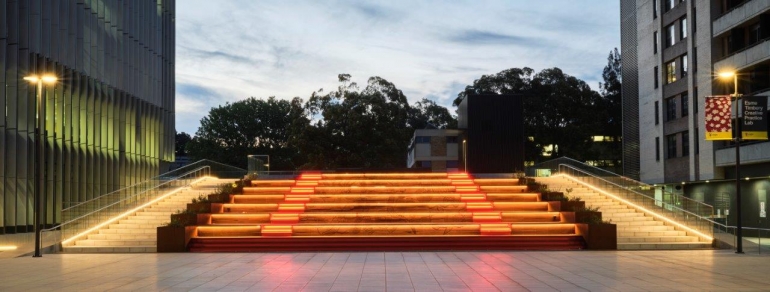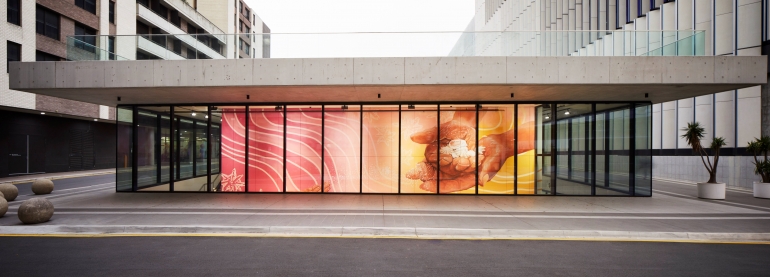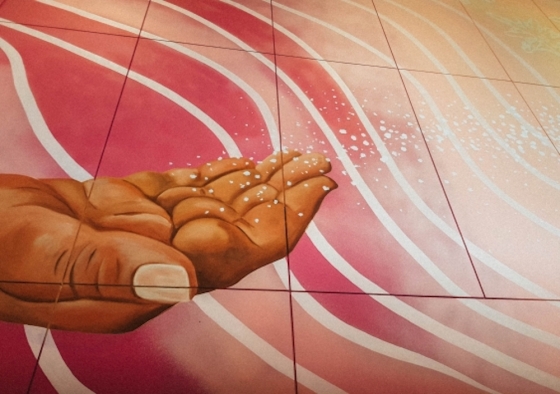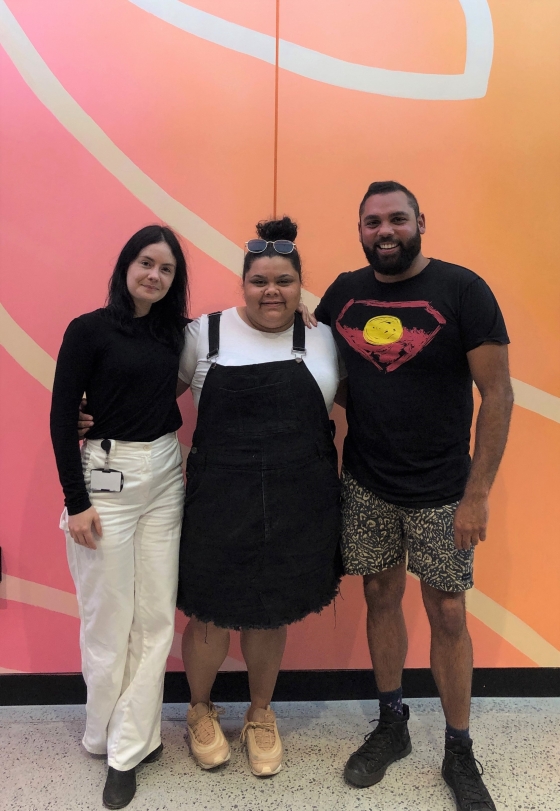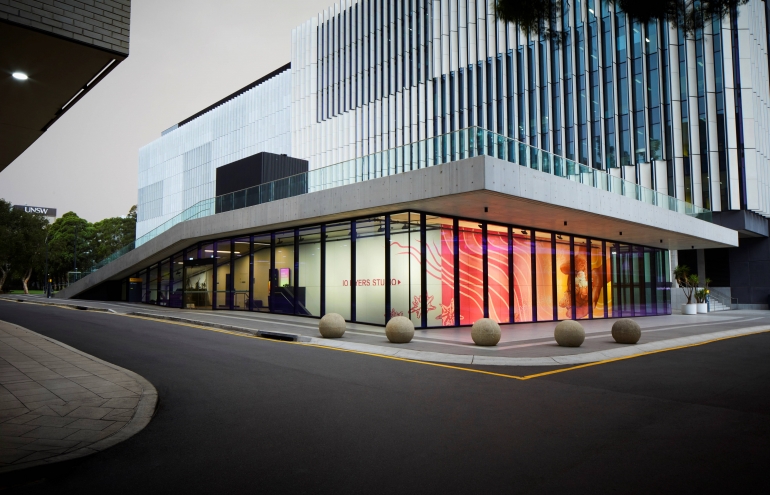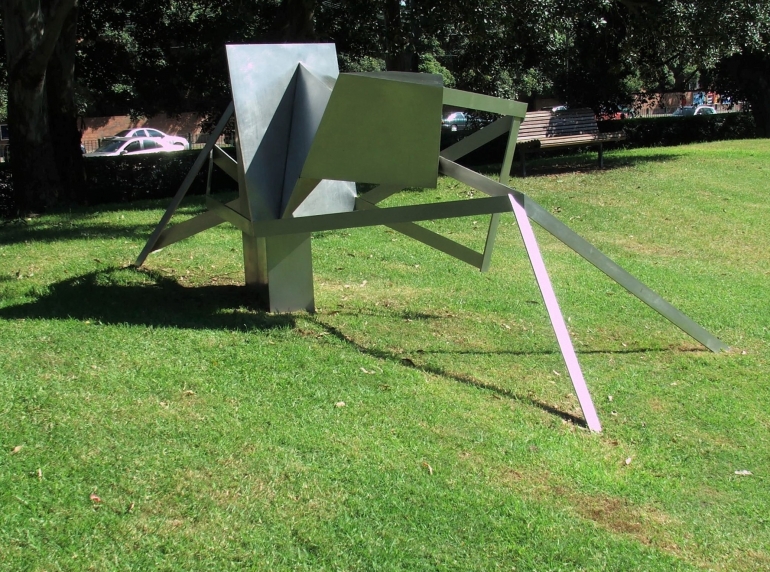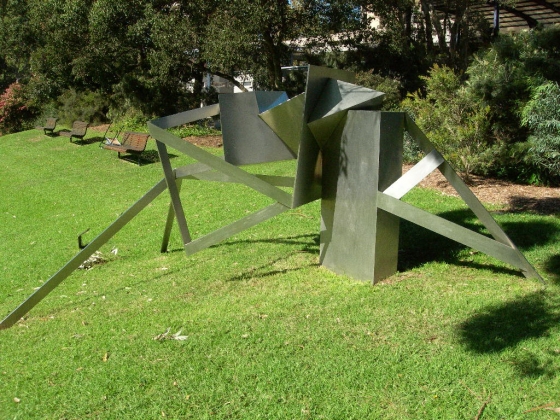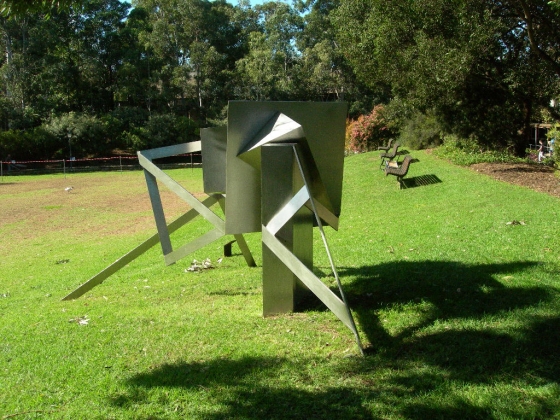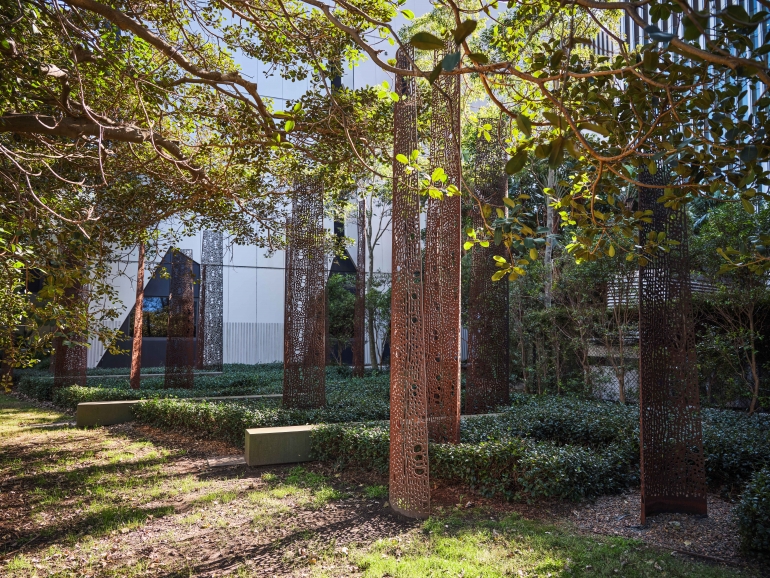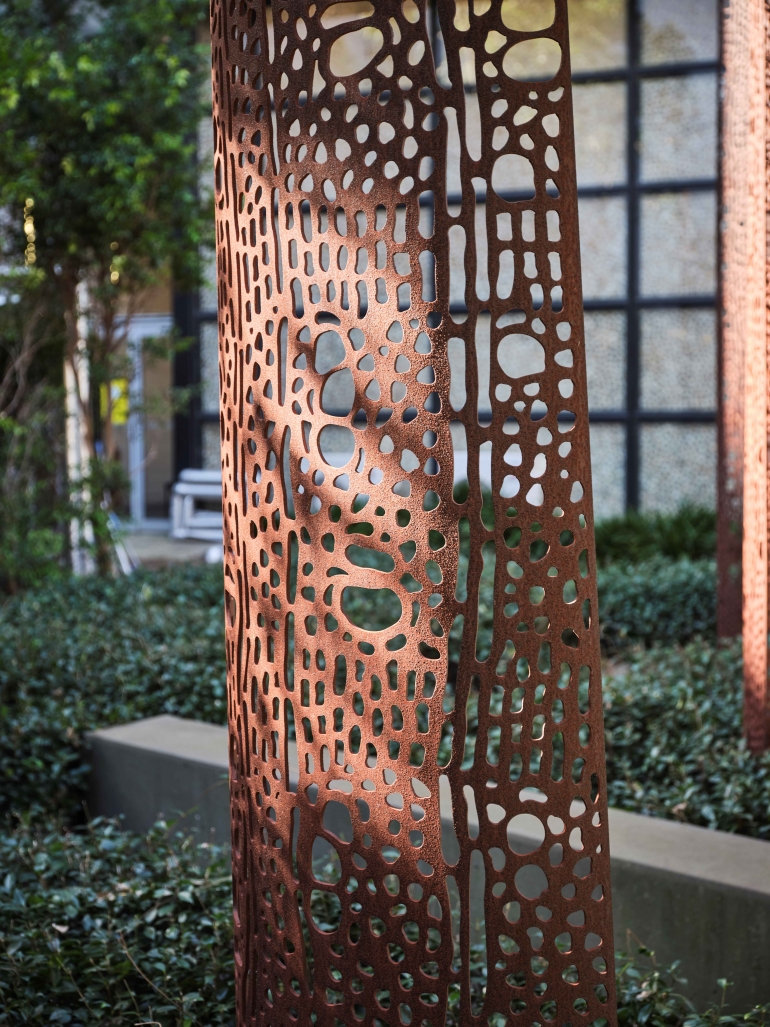Uncle Greg Simms (Gadigal/Dharug) with guidance by Aunty Marjorie Dixon (Bidjigal) and Uncle Assen Timbery (Bidjigal) and interpretations by Danièle Hromek (Budawang/Yuin) and Samantha Rich (Wiradjuri)
Guruwaal 2021
engraving in concrete paving, counter-relief on wooden bleachers
Commissioned 2021. UNSW Art Collection
Location: Alumni Park West
Guruwaal is a collaborative integrated artwork guided by Aboriginal Knowledge Holders and Custodians of the area local to UNSW. Uncle Greg Simms (artist), Aunty Marjorie Dixon (cultural advisor) and Uncle Assen China Timbery (cultural advisor) worked with Danièle Hromek and Samantha Rich to interpret narratives of the place of UNSW. Aboriginal community engagement was also undertaken by Michael Hromek from WSP’s Indigenous Services Team with the La Perouse community to understand the narratives and histories of the Country on which UNSW is located on the western Kensington campus.
Guruwaal draws upon the narratives and histories of the local Aboriginal community and is connected to the knowledges of place and the deep histories of Country that are embedded within the community. The overarching story recognises that for the local mob, as saltwater people their totem is the whale. The whale bones on the concrete area shows the design the La Perouse community uses to paint themselves up with for ceremony and dance. ‘Guruwaal’ means whale in the local language, spelled like this to reflect the way the word is to be said.
The animals represented on the wooden stairs, who belong to this place, are revealing that the site used to be swampy, or bitterwater, the brackish water that sits between salt and freshwater. Nearby is sweetwater or freshwater for drinking. The animals are showing the journey from saltwater to sweet through the brackish water, revealing this as a meeting place that brings people together from many places. The artists wanted all who visit this place to know that Aboriginal peoples, including students, staff and visitors, have belonging here as do all people who come to this place.
The designs on the bleachers are from drawings by Uncle Greg Simms and depict a catfish, platypus, sea turtle, long-necked turtle, gecko and snake as well as grinding grooves and billabong water holes.
On the bleachers, planter boxes contain Eastern Suburbs Banksia Scrub, an important ecological community to much of the eastern parts of Sydney, returned to place as a reminder of the importance of including spaces for non-humans to inhabit places that have become covered by concrete, brick and glass.
Uncle Greg Simms is well known as an activist for reconciliation, a traditional woodcarver, a storyteller and an educator for Aboriginal culture. Uncle Greg’s heritage is Gadigal (whale people) of the Dharug nation and Gundungurra (water dragon lizard people). Uncle Greg grew up in La Perouse and lives in Western Sydney.
Aunty Marjorie Dixon is a Bidjigal Elder living in La Perouse. Aunty Marjie is Uncle Greg’s older sister who brought Uncle Greg up from a young age. Aunty Marjorie was a cultural advisor for this project.
Uncle Assen China Timbery is a Bidjigal Elder living from La Perouse. Uncle China is the cousin of Aunty Marjie and Uncle Greg, and the nephew of Aunty Esme Timbery, after whom the Esme Timbery Creative Lab is named. Uncle China was a cultural advisor for this project.
Dr Danièle Hromek is a Budawang woman of the Yuin nation. She works as a spatial designer, cultural designer and researcher considering how to Indigenise the built environment. Her work contributes an understanding of the Indigenous experience and comprehension of space, investigating how Aboriginal people occupy, use, narrate, sense, dream and contest their spaces.
Samantha Rich is an architectural designer of Wiradjuri and European heritage with experience across art, residential, health, and civic projects. Sam has a deep passion for the social and cultural factors that influence the design of space in particular working with First Nations Communities to translate their narratives and perspectives into built form.
Uncle Greg, Aunty Marjie and Uncle China are Danièle’s Elders by blood, via the connections the La Perouse community has with South Coast mob. They have a strong relationship and have worked together extensively in the past including on pedagogical projects, art and design projects and are currently working on publishing Uncle Greg’s life story with Magabala Books. Samantha and Danièle are collaborating on other projects as well as well as being members of Deadly Djurumin, a group of Indigenous women trained and working in the built environment.
Alumni Park is a space on UNSW's western Kensington campus recently revitalised to provide new recreation facilities for students and staff, embrace the history of the land and its people, and recognise the contribution of alumni. Guruwaal was developed within the landscape and architectural framework designed by McGregor Westlake Architecture and Spackman Mossop Michaels following consultation with local Elders.
The images in this artwork embody cultural knowledge of members of the La Perouse Aboriginal community. It was created with the consent of custodians of the community, including the Elders named above. Dealing with any part of the images for any purpose that has not been authorised by the custodians is a serious breach of the customary laws of the La Perouse community and may breach the Copyright Act 1968). For enquiries regarding the permitted reproduction of these images, contact Danièle Hromek.
